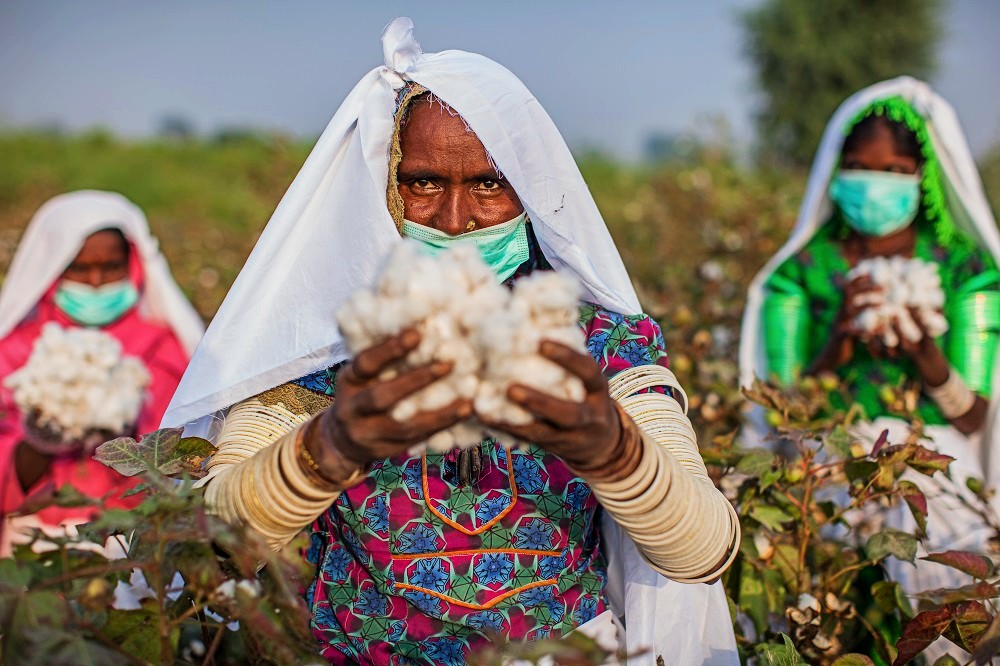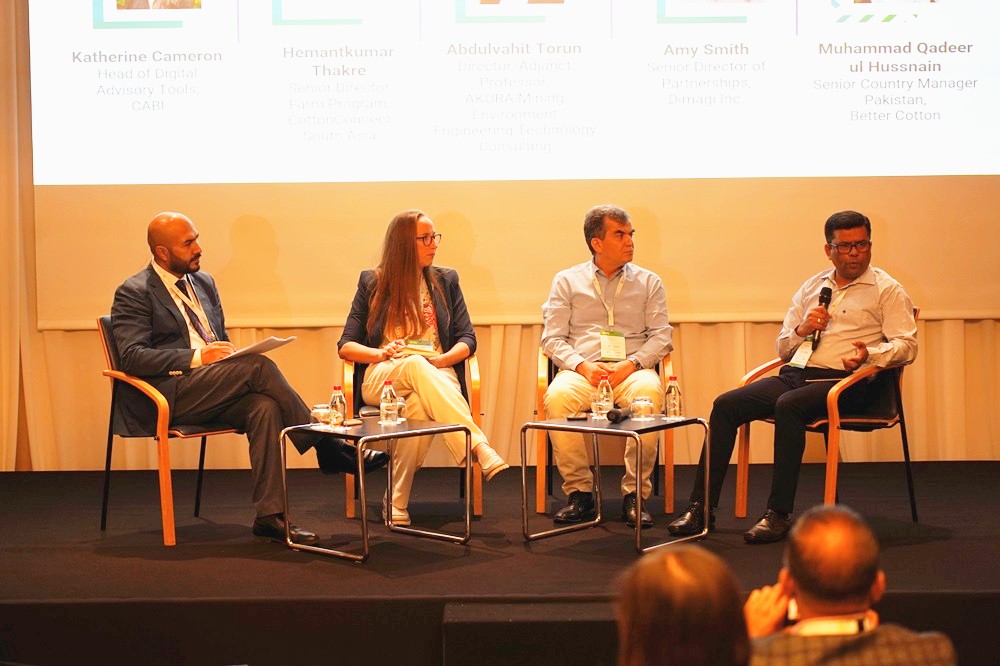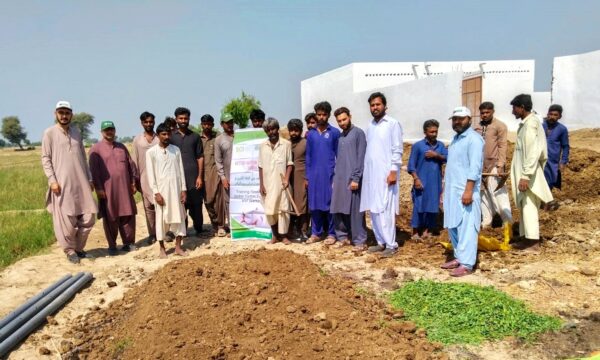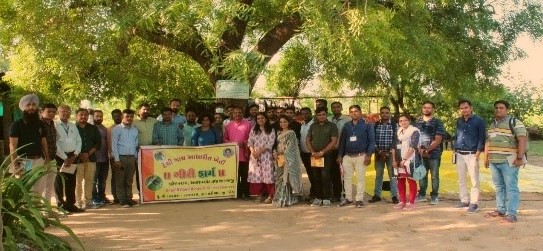
When it comes to farmer advisory, are we really able to advise? That was the question posed to Katherine Cameron, CABI’s Head of Digital Advisory Tools, at the Better Cotton Conference 2025 which took place recently in Izmir, Turkey.
The responsibility to provide high quality, scientifically based, safe and effective advice can be daunting, and often puts off organisations from attempting to deliver farm management advice to farmers who are crying out for decision support.
Better yields, improved working conditions and greater financial security
The Better Cotton Initiative is the world’s leading sustainability initiative for cotton, with a mission to help cotton communities survive and thrive while protecting and restoring the environment. With support from their stakeholders across the cotton industry they help farmers to enjoy better yields, improved working conditions and greater financial security. Around 2.13 million farmers in 22 countries now have a licence to sell their cotton as Better Cotton.
CABI is an implementation partner for Better Cotton in Pakistan. As part of the project ‘Producing better cotton in Pakistan,’ CABI is working with field facilitators and cotton farmers to train on sustainable pest and disease management and soil and water management.
In many Better Cotton countries farmers have limited access to advisory support. Digital Advisory tools offer the potential to reach large numbers of farmers, but how do we ensure the advice is reliable and effective – how do we hold the burden of responsibility for livelihoods whilst not being paralysed by this responsibility?
Katherine shared some insights from CABI’s work on the PlantwisePlus programme, which delivers pest and disease management advice to farmers across 27 countries in Africa, Asia and the Americas, reaching over 1.5 million farmers to improve their food security and yields by more than 20%.
Advisory tools that deliver practical, actionable advice to smallholder farmers
CABI has over 100 years’ experience of scientific research and publishing on agriculture, providing a strong basis for scientific integrity and trust. Back in 2011 when we started the Plantwise programme we pivoted this knowledge to create advisory tools that deliver practical, actionable advice to smallholder farmers.
Templates were developed for short factsheets and Pest Management Decision Guides to collate integrated pest management (IPM) advice for prevention, monitoring and control, encouraging the use of sustainable and safe practices including biopesticides and cultural techniques, rather than reliance on pesticides.

“Involving local partners in collating advisory information is critical,” said Katherine. “Whilst advisory tools enable us to share conventional advice widely, we also need to recognise that they enable farmers to share their own knowledge with other farmers too. We combine evidence-based indigenous practices alongside conventional practices, and make sure our advice is grounded in both science and local context.”
These factsheets and Pest Management Decision guides are validated by both CABI experts and local partner experts, and published in the PlantwisePlus Knowledge Bank and PlantwisePlus Factsheet Library app, with offline capability and translation to local languages.
Advice is validated against five key pillars of quality. The advice must be:
• safe for farmers and the environment
• effective – otherwise it is a waste of farmers’ time and money – thereby raising the question ‘What is the scientific basis for efficacy of the practice?’
• locally available
• affordable, and
• practical.
Directory of available, locally registered, biopesticide products
Recognising that there was a need to reduce the reliance on hazardous pesticides, both for human health and environmental health, CABI created the BioProtection Portal, providing a directory of available, locally registered, biopesticide products.
This covers 49 countries, including many of the Better Cotton countries. And to address overuse of pesticides we developed the Crop Sprayer app to enable farmers to calculate the right dose of product to spray.
Through CABI’s work with Better Cotton, its implementation team in Pakistan work with field facilitators in Sindh and Punjab and show them how to use the PlantwisePlus Factsheets app and the Crop Sprayer app, with both translated into local languages.
They also use the CABI Academy online training materials to build capacity amongst the project team and farmers on subjects such as pest diagnosis and management, sustainable soil and water management, reducing pesticide risks, and gender-inclusive agricultural practices.
But what are some of the blockers to farmers accessing advisory tools?
During the keynote speech at the opening session of the Better Cotton Conference, Lavinia Muth noted that 40-50% of global cotton is produced by women farmers, and yet we know that women farmers have much lower access to advisory support than men (FAO).
“The best way to invest in women [farmer]s empowerment is to invest in women’s training on agricultural practices,” said Kavita, a lead cotton farmer at SAMI Foundation in Pakistan. Digital advisory tools and e-learning tools play a role in this, but only if women farmers or the women facilitators working with them are able to access and use these tools.
To reach women cotton farmers in Pakistan, CABI’s Better Cotton implementation team actively engage women in digital learning activities and involve women in project staff to enable them to reach out to more women farmers for involvement in agriculture and decision making.
“Our strategy focuses on creating a sustainable learning environment, where women are empowered to access knowledge independently or with facilitated support,” says Habat Ullah Asad, who leads CABI’s Better Cotton implementation work in Sindh. “By leveraging digital tools, certified field staff, and gender-responsive content delivery, we aim to reduce the gender digital divide and promote women’s active participation in sustainable agriculture practices.”
Additional information
If you’d like to discuss how CABI can support your project, programme or initiative in development of farmer advisory information and delivery via digital advisory tools please reach out to k.cameron@cabi.org.
Main image: CABI is supporting the Better Cotton Initiative with a mission to help cotton communities survive and thrive while protecting and restoring the environment(Credit: Asim Hafeez for CABI).
Digital Advisory Tools
CABI develops digital advisory tools that can help users make informed decisions.
By providing farmers, practitioners and policymakers with the tools to support evidence-based choices, we can support better responses to farming challenges.
Find out more here.
Project Page
CABI is working with several small and medium farmers at field level in two of the major cotton-growing regions in Pakistan, Sindh and Punjab. CABI is supporting these farmers to produce better cotton that takes social, environmental and economic criteria into account.
Learn more from the project page ‘Producing better cotton in Pakistan.’
Better Cotton
In just over 10 years Better Cotton has become the world’s largest cotton sustainability programme. Its mission: to help cotton communities survive and thrive, while protecting and restoring the environment.
Find out more here.
Related News & Blogs
Sindh farmer gains global recognition for sustainable cotton farming innovations
Photo credit: Evronas/Better Cotton. Location: Better Cotton Conference, Istanbul, Türkiye, 2024. Sindh farmer Fateh Muhammad Laghari has gained recognition for his commitment to sustainable cotton farming practices as part of the Better Cotton Member…
5 December 2024





